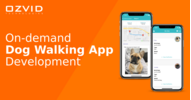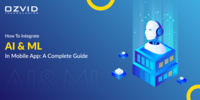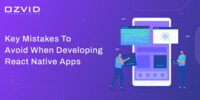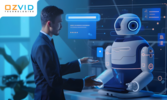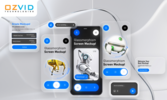- May 02, 2025
Share this post on:
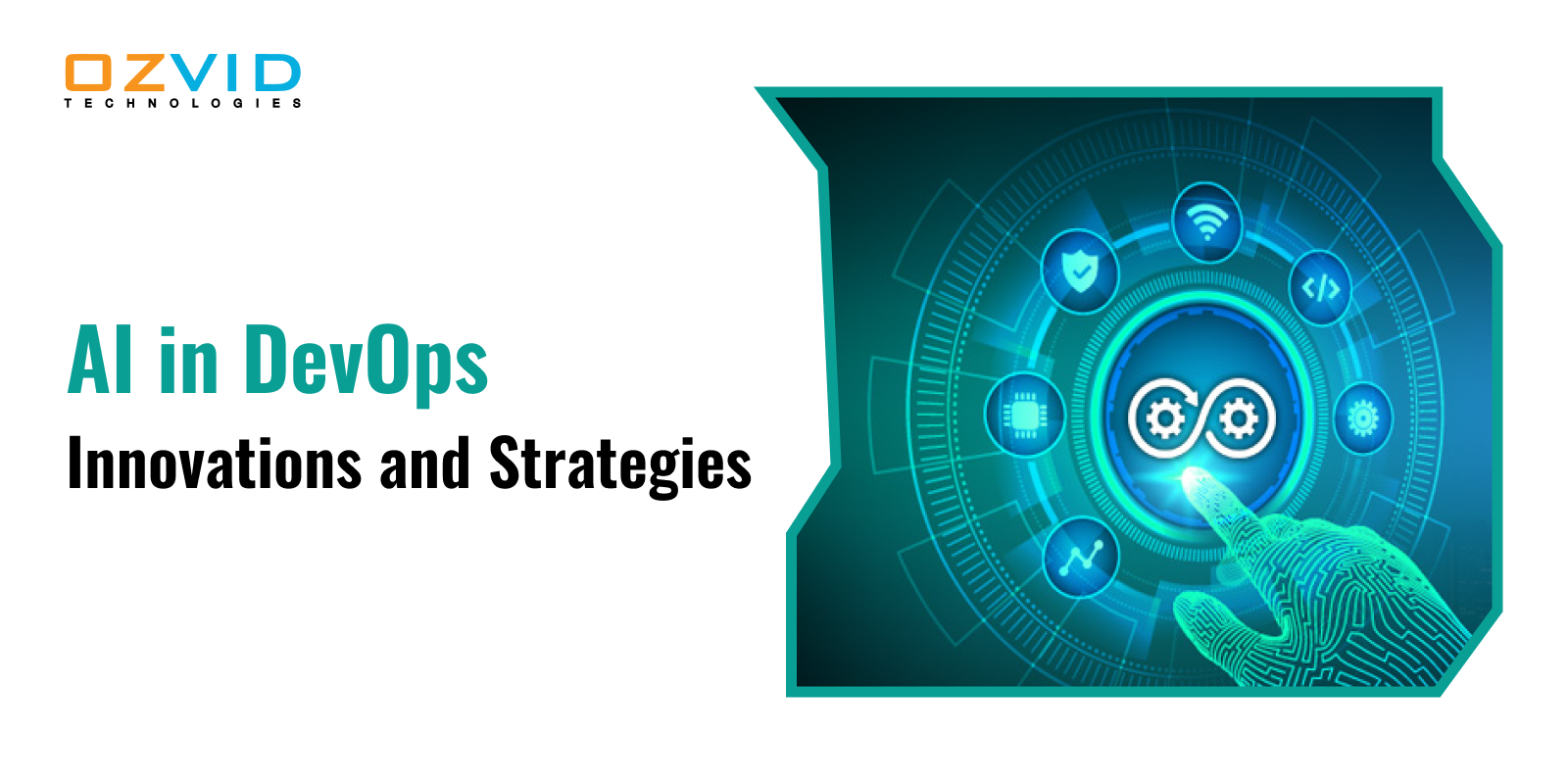
We live in a world where data is king. Businesses are constantly surrounded by lots of data, giving rise to AI-enabled DevOps. Artificial intelligence (AI) is transforming the realm of software development and operations, ushering in a new era defined by exceptional speed, innovation, and increased efficiency. At the forefront of this transformation is AI-driven DevOps, which seamlessly integrates AI technology into the DevOps workflow to enhance collaboration, automate repetitive tasks, and optimise the software development lifecycle.
AI algorithms process vast amounts of data generated during software development, providing valuable insights that enable teams to make informed decisions and identify potential issues before they become significant problems. Additionally, by harnessing AI, organisations can streamline their processes, minimise human intervention, and expedite the delivery of high-quality software.
In a fast-paced environment where scalability and agility are essential, AI-driven DevOps is not just an advantage but a necessity. This blog will explore the vital role of AI in DevOps, highlighting its applications, implementation strategies, and benefits. We will also examine leading AI tools and delve into the challenges associated with adopting AI-driven DevOps approaches.
Key Takeaways:
- AI-driven DevOps enhances collaboration, automates tasks, and optimizes software development.
- It improves productivity, software quality, flexibility, and decision-making.
- Successful AI integration requires clear objectives, use cases, and suitable tools.
- The future of AI in DevOps involves increased automation and predictive analytics.
Role of AI in DevOps
A recent report underscores how AI is revolutionising the DevOps landscape. By empowering developers to write code of higher quality and automating numerous manual tasks, AI is driving a significant shift in the software development and deployment process. A recent report from Google Cloud's DevOps Research and Assessment (DORA), which surveyed 36,000 technology professionals worldwide, reveals that 30% of respondents find AI valuable in tasks such as log analysis and bug identification. This statistic underscores the increasing significance of AI in enhancing efficiency and effectiveness within DevOps practices.
As we look to the future, the integration of generative AI in DevOps may further evolve these procedures, offering unprecedented levels of automation and efficiency. Generative AI has the potential to revolutionise DevOps by writing code, building infrastructure, and optimising workflows, ultimately accelerating the software development lifecycle and driving innovation.
Benefits of AI in DevOps
AI-driven DevOps offers numerous benefits that greatly enhance software development and deployment processes. It optimises workflows, automates mundane tasks, and improves decision-making through predictive analytics. Let’s explore some of the key advantages of AI-driven DevOps.
1. Enhanced Productivity
Artificial intelligence significantly boosts productivity in DevOps by automating labour-intensive manual tasks such as testing and code reviews. This automation accelerates the development process, reduces the likelihood of errors, and facilitates quicker software updates. One of the key advantages of AI-driven DevOps is that it liberates developers from monotonous tasks, allowing them to focus on more strategic responsibilities, thereby enhancing overall software development productivity and efficiency.
2. Improved Quality
AI plays a crucial role in enhancing the quality of software releases by scrutinizing code for errors, security vulnerabilities, and adherence to coding standards. This thorough analysis minimises the risk of defects and security issues by ensuring that applications meet stringent compliance requirements. By identifying and addressing problems early in the development cycle, artificial intelligence contributes to the reliability of software releases, ultimately boosting customer satisfaction and loyalty.
3. Increased Flexibility
The adaptability offered by AI is a significant asset in DevOps, enabling teams to swiftly respond to changing environments and requirements. With AI, DevOps teams can more efficiently roll out updates, manage resources, and adjust processes. This flexibility ensures that software development remains responsive to evolving needs, leading to the faster delivery of high-quality software.
4. Cost reduction
AI's role in DevOps extends beyond merely controlling costs; it also enhances productivity. By automating processes and reducing the need for human involvement in manual tasks like testing and deployment, AI helps lower operational expenses. Additionally, it streamlines workflows and optimises resource allocation, further decreasing the costs associated with software development and deployment. The ability of AI to boost productivity and automate tasks can have a significant financial impact by reducing the overall costs of DevOps operations.
5. Faster Time-to-Market
When considering how DevOps can leverage AI, one clear advantage is the substantial reduction in time-to-market for software products. AI streamlines processes and automates repetitive tasks, enabling quicker deployment of new features and updates. By automating key development operations, DevOps teams can deliver updates and new features more rapidly, allowing them to maintain a competitive edge. This increased efficiency in the development process empowers teams to respond swiftly to market demands, resulting in faster time-to-market for new features and products.
6. Improved Decision-Making
Another significant benefit of AI in DevOps is enhanced decision-making. AI equips DevOps teams with insights and data analysis capabilities, enabling them to make informed choices regarding process optimisation and resource allocation. By identifying patterns and trends within large datasets, artificial intelligence helps teams streamline operations and allocate resources more effectively. This data-driven approach enhances decision-making, ultimately leading to more efficient and productive DevOps practices.
How to implement AI in DevOps
Integrating AI into DevOps requires several essential steps to ensure successful adoption and integration. Below is a step-by-step guide to facilitate this process.
1. Set clear objectives.
Defining clear goals and objectives is essential when integrating AI into DevOps. Whether your aim is to increase release frequency, automate manual tasks, or strengthen security measures, it’s important to articulate your integration objectives. These goals will act as a roadmap for your AI implementation strategy, helping you select tools and technologies that align with your unique aspirations. By establishing specific objectives, you can effectively measure the success of your AI integration and ensure it delivers tangible benefits to your DevOps processes.
2. Identify use cases.
In the realm of AI-driven DevOps, it is vital to identify specific use cases where AI can be effectively applied. Potential use cases may include predictive analytics for anticipating issues and enhancing decision-making, infrastructure management for optimising resource allocation, automated testing to improve code quality, or code review to detect flaws and vulnerabilities. By pinpointing these use cases, you can tailor your AI integration plan to address specific challenges and enhance the overall effectiveness of your DevOps practices.
3. Choose AI tools and technologies.
Selecting the appropriate tools and technologies is critical for successful AI integration in DevOps. Start by identifying AI solutions that align with your specific use cases and objectives. Consider factors such as ease of integration, scalability, and compatibility with your existing DevOps technologies. Additionally, take into account the long-term implications of your AI selections, ensuring that the chosen tools can evolve alongside your DevOps processes. By carefully selecting the right AI tools and technologies, you can maximise the advantages of AI-enhanced DevOps practices.
4. Integrate AI into DevOps workflows.
To fully leverage the benefits of AI, it is essential to integrate it seamlessly into your DevOps workflows. Implement AI technologies in a way that allows them to work harmoniously with your current testing frameworks, monitoring systems, and CI/CD pipelines. By doing so, you can optimise your development and operational processes, enhancing decision-making, automating repetitive tasks, and improving resource allocation. This integration fosters agility and innovation within your DevOps environment.
5. Ensure security and compliance.
When incorporating AI into DevOps, it is crucial to prioritise security and compliance. Ensure that your AI tools adhere to relevant regulations and standards. Conduct a thorough analysis of the security features and compliance capabilities of your AI systems. Implement robust security measures to protect your AI systems from cyber threats. By focussing on security and compliance, you can mitigate risks and ensure that your AI-driven DevOps processes remain secure and compliant with legal requirements.
6. Monitor and evaluate performance.
To ensure the effectiveness of AI in your DevOps operations, it is important to regularly monitor and evaluate its performance. Track key metrics such as team productivity, software quality, and release frequency to assess the impact of AI integration. Utilise this data to identify areas that may require further optimisation and to recognise where AI is driving improvements. Regular performance reviews will allow you to refine your AI strategies and ensure they align with your broader DevOps objectives. By monitoring key performance indicators, you can determine the best ways to leverage AI to enhance your DevOps processes.
The Future of AI in DevOps
AI and DevOps share numerous similarities and have the potential to revolutionise software development, deployment, and management. The outlook for AI in DevOps is promising, as AI-driven automation is poised to enhance productivity and reduce errors by streamlining processes. Predictive analytics will enable proactive problem-solving, allowing teams to anticipate and address issues before they occur.
AI-powered tools will enhance team collaboration, leading to faster innovation cycles and higher-quality software. The evolution of DevOps into AIOps will see AI driving innovation and continuous improvement by automating, analysing, and refining processes. As generative AI continues to advance, its influence on DevOps is expected to grow, automating not only routine tasks but also complex decision-making and optimization. This shift, fuelled by generative AI in DevOps, promises to transform the software development landscape, making processes quicker, more accurate, and highly adaptable to evolving needs.
For businesses looking to harness these advancements, partnering with an artificial intelligence development company can provide the expertise and resources necessary to effectively integrate AI into their DevOps practices. This collaboration ensures that you remain at the forefront of innovation and fully capitalise on the benefits of this transformative technology.
How can Ozvid Technologies help you in your DevOps journey?
Ozvid Technologies is a leading provider of DevOps consulting services, offering the most robust and innovative solutions to their clients. Our team of developers can assist you in harnessing AI to enhance your DevOps workflows, drive innovation, and sustain your competitive advantage in today’s rapidly evolving digital landscape. Rely on us to help you fully leverage the potential of AI in your DevOps practices. Reach out to our experts today to create powerful AI-driven DevOps solutions that boost efficiency, agility, and success across your software development lifecycle.
FAQ's
1. What is the role of AI in DevOps?
AI helps DevOps teams by automating repetitive tasks, analyzing large amounts of data, and predicting issues before they happen. It improves software delivery speed, accuracy, and system performance. At OZVID Technologies, we use AI to make DevOps smarter, faster, and more reliable for modern development environments.
2. How does AI improve DevOps efficiency?
AI increases DevOps efficiency by detecting bugs early, automating testing, and speeding up deployments. It learns from past data to optimize workflows and reduce manual work. This leads to faster releases and fewer errors. OZVID Technologies implements AI-driven DevOps strategies to help teams work smarter and deliver better software faster.
3. Can AI help in monitoring and incident management?
Yes, AI can monitor systems in real-time, detect unusual behavior, and alert teams instantly. It also helps prioritize incidents and recommend quick fixes. This reduces downtime and improves service reliability. At OZVID Technologies, we use AI-powered monitoring tools to keep systems stable and prevent issues before they grow.
4. What are the main benefits of using AI in DevOps?
AI brings faster development cycles, better decision-making, and improved performance in DevOps. It helps predict system failures, automates repetitive tasks, and supports continuous improvement. OZVID Technologies uses AI to streamline DevOps processes, saving time and improving product quality for businesses of all sizes.
5. Is AI in DevOps suitable for small businesses?
Absolutely. AI tools can help small businesses by reducing manual tasks, speeding up releases, and cutting costs. With scalable AI solutions, even smaller teams can benefit from smarter automation. OZVID Technologies offers tailored DevOps services with AI integration to help startups and SMEs grow efficiently and securely.

